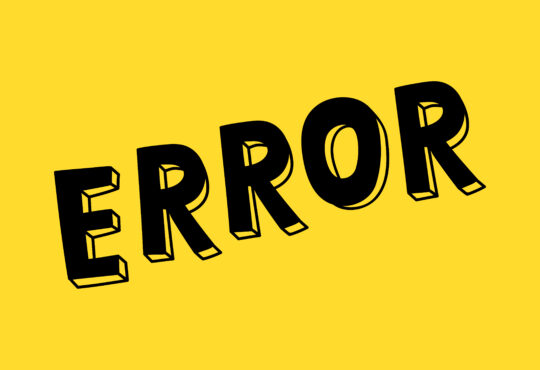In the world of business, effective communication is the cornerstone of success. This holds true not just in your own language but also when conducting business in foreign lands. Korea, with its unique culture and business etiquette, is no exception. In this article, we’ll delve into the importance of understanding the nuances of formal and informal language in Korean business settings and why it matters.
Formal vs. Informal Language in Korean Business
To navigate Korean business successfully, it’s essential to grasp the distinctions between formal and informal language.
In the Korean context, formal language, or “jondaetmal,” is characterized by politeness and respect. It is often used when addressing superiors, clients, or in more official settings. For example, when you’re speaking to a senior executive or during a business meeting, you’d use formal language to convey respect and professionalism.
On the other hand, informal language, known as “banmal,” is used among peers or subordinates. It’s relaxed and less ceremonious. When you’re talking to colleagues or friends in a business context, you can employ informal language to foster a more friendly atmosphere.
The Crucial Role of Language Formality
The use of formal or informal language is not a mere convention in Korean business culture; it’s a reflection of societal values. Respect for authority and hierarchy is deeply ingrained. Addressing someone with the appropriate level of formality is a sign of acknowledging their position and showing respect.
Conversely, using the wrong form of language can lead to misunderstandings or even offend your Korean counterparts. It may convey a lack of respect or an inappropriate level of familiarity. This could have a detrimental impact on your business relationships, hindering cooperation and trust.
Imagine addressing a senior executive in a Korean company in an informal language. It’s like addressing your CEO by their first name during an important board meeting. The fallout might be a strained relationship or lost business opportunities.
Formal Korean Language Use in Business
A. Characteristics of formal language in Korean business communication.
Formal language in Korean business communication is the key to conveying respect and maintaining professionalism. Here are some of its distinct characteristics:
- Honorifics: Formal language is rich in honorifics, a system of linguistic elements that show deference and respect to the listener. These honorifics can involve special verb endings, particles, and honorific nouns. For instance, using “시” (shi) or “입니다” (imnida) at the end of sentences is common to add politeness.
- Polite Address: When using formal language, you would typically address others by their titles and last names. For example, “Mr. Kim” would be referred to as “김 선생님” (Kim Seonsaengnim) or “김 대표님” (Kim Daepyonim) in a business context.
- Complex Sentence Structure: Formal language often involves more complex sentence structures and expressions to show respect and politeness.
B. Examples of when and how to use formal language.
Formal language should be used in various situations in Korean business interactions:
- Meetings and Presentations: When addressing superiors or clients in meetings or presentations, it’s crucial to use formal language. For instance, “저희는 이 프로젝트를 향상시키기 위해 노력하겠습니다” (Jeohui-neun i peurojekteul hwang-sang-sikigi wihae no-ryeok-ha-get-seumnida) shows a commitment to improvement with the appropriate level of formality.
- Email Correspondence: In written communication, such as emails, it’s essential to maintain a high level of formality. Begin with a polite greeting, such as “안녕하십니까?” (Annyeong-hasimnikka), and end with a courteous closing, such as “감사합니다” (Gamsahamnida), meaning “thank you.”

C. Emphasize the respect and politeness conveyed through formal language.
The essence of using formal language in Korean business lies in its ability to convey respect and politeness. It’s a way of recognizing the hierarchical structure and demonstrating your commitment to maintaining a professional, respectful environment. By using the correct form of language, you show that you value your business relationships and are dedicated to preserving the harmony and dignity of the interaction.
For instance, addressing a senior manager with a formal “김 대표님” instead of simply “김” not only acknowledges their position but also reflects your respect for their authority. It’s akin to addressing your boss as “Mr. or Mrs.” instead of by their first name in English-speaking cultures.
In Korean business culture, every word, every form, and every gesture carries meaning. Formal language, with its emphasis on respect and politeness, is a language of courtesy and diplomacy. Understanding its characteristics and the situations in which it’s required is a crucial step towards successful business interactions in Korea.
Informal Korean Language Use in Business
A. Characteristics of informal language in Korean business communication.
Informal language in Korean business settings is, in many ways, the polar opposite of formal language. It’s characterized by its casual, relaxed tone and a less strict adherence to traditional honorifics. Here are some key characteristics:
- First Names: When using informal language, it’s common to address colleagues or peers by their first names without honorific titles. For example, you might call a coworker named Ji-hoon, “Ji-hoon-ah” or simply “Ji-hoon.”
- Simplified Sentence Structure: Informal language tends to use simpler sentence structures, making it more conversational and less complex than its formal counterpart.
- Reduced Use of Honorifics: Informal language often avoids extensive use of honorifics, which can make conversations more casual and less rigid.
B. Instances when it’s appropriate to use informal language.
While formal language dominates in Korean business culture, there are situations where informal language can be used:
- Among Peers: Informal language is commonly used when conversing with colleagues at the same hierarchical level or peers. For example, when discussing work-related matters with coworkers you’re close to, you can use informal language to create a more relaxed atmosphere.
- Casual Social Events: Informal language is acceptable at informal gatherings, like team dinners or after-work events, where the atmosphere is relaxed and friendly.
C. Highlight the potential pitfalls of using informal language inappropriately.
Using informal language inappropriately in a Korean business context can have consequences:
- Disrespect: Using informal language with superiors or clients can be perceived as disrespectful and unprofessional. It may lead to strained relationships and damage your credibility.
- Misunderstandings: Informal language can sometimes be ambiguous, leading to misunderstandings, especially when discussing complex or sensitive business matters. Clarity can be sacrificed in the name of informality.
- Cultural Insensitivity: Failing to switch to formal language when required can be seen as culturally insensitive. It reflects a lack of awareness of Korean business etiquette and can hinder successful cross-cultural interactions.
To illustrate, imagine using informal language when presenting a proposal to a senior executive. This might be seen as a lack of respect for their position and expertise, potentially jeopardizing the approval of your proposal or damaging your professional reputation.
Nuances of Language Use
A. Explore the nuances in tone, vocabulary, and expressions between formal and informal Korean.
The differences between formal and informal Korean language go beyond just the words used. These nuances extend to tone, vocabulary, and expressions, making it crucial to grasp these subtleties for effective communication:
Tone:
- Formal: The tone in formal Korean is typically reserved and polite, with an emphasis on maintaining respect and professionalism. It’s characterized by a calm and measured delivery.
- Informal: Informal Korean carries a more relaxed and friendly tone. Conversations can be livelier, and speakers may show more emotion.
Vocabulary:
- Formal: Formal language often uses complex and specific vocabulary. Polite terms and honorifics are prevalent, reflecting a deep level of respect.
- Informal: Informal language employs simpler and more common vocabulary, making it accessible and easygoing.
Expressions:
- Formal: Formal language tends to include expressions of humility and respect. For example, you might hear phrases like “소견이 틀리더라도” (sogyeoni teullideorado), which means “Even if my opinion is wrong,…” to show deference.
- Informal: Informal language is more straightforward and may use less embellished expressions. It encourages a direct and open style of communication.
B. Scenarios to illustrate these differences.
Let’s explore real-world scenarios to see how these nuances play out:
Scenario 1: Business Meeting with a Superior
- Formal Language: During a formal meeting with your company’s CEO, you would use formal language to show respect. You might say, “김 대표님, 이 보고서는 중요한 결과를 보여주고 있습니다” (Kim Daepyo-nim, i bogoseoneun jungyohan gyeolgwaneul boyeju-go itsseumnida), which means, “Mr. Kim, this report is showing important results.”
- Informal Language: In an informal team meeting, discussing the same report with your colleagues, you might use informal language, like “김 선배, 이 보고서 진짜 좋아” (Kim Seonbae, i bogoseo jinjja joa), meaning “Kim, this report is really good.”
Scenario 2: Team Lunch
- Formal Language: When inviting your team to lunch as a manager, you might say, “저희 팀원들, 이번 주 금요일에 비즈니스 런치를 하러 갈까요?” (Jeohui timweondeul, i-beon ju geumyoile bizeuniseu reunchi-reo hareo galkka?), asking formally, “Team members, shall we go for a business lunch this Friday?”
- Informal Language: For an informal gathering, you could simply say, “금요일 팀 런치 어때?” (Geumyoil tim reunchi eottae?), which translates to, “How about a team lunch on Friday?”
Understanding these nuances is essential for selecting the right language style for each situation. While both formal and informal language have their place, knowing when to use them appropriately ensures effective communication and fosters better relationships in Korean business contexts.
Cultural Considerations
A. Role of cultural context in language choice.
The choice between formal and informal language in Korean business communication is deeply entwined with cultural context. Korean culture places significant emphasis on hierarchy, respect, and social harmony, and these values play a crucial role in determining language use.
- Hierarchy: Korean society is structured hierarchically, and this hierarchical order is mirrored in language. Understanding one’s place in this hierarchy and that of the person you are communicating with is paramount. Language choice reflects this hierarchy by using formal language when speaking to superiors, elders, or clients and informal language among peers or subordinates.
- Respect: Respect is a cornerstone of Korean culture. Respect for elders, authority figures, and even peers is highly valued. Using formal language conveys respect, not only for the individual but also for their position or role within the hierarchy. It shows an understanding and acknowledgment of their authority or seniority.
- Social Harmony: Korean culture places great importance on maintaining social harmony. Correct language use helps in this regard by preventing the risk of offending or upsetting others. It ensures that interactions proceed smoothly and without disruptions.
B. Understanding Korean culture is essential for correct language use.
Understanding Korean culture is fundamental for correct language use in business and other interactions for several reasons:
- Respect and Courtesy: Korean culture places a high value on respect and courtesy, especially towards those in positions of authority or seniority. Using the correct form of language is an essential way to demonstrate this respect.
- Building Relationships: Korean business culture is built on relationships and trust. Proper language use fosters positive impressions and helps build strong, lasting relationships. It showcases your commitment to understanding and adapting to Korean customs.
- Avoiding Offense: Inadvertently using informal language with a senior or using overly formal language with peers can be seen as disrespectful or standoffish. Such missteps may harm relationships and hinder collaboration.
- Effective Communication: Language is a tool for effective communication. Using the right language style enhances clarity, reduces misunderstandings, and promotes successful exchanges of information and ideas.
- Cultural Sensitivity: Demonstrating cultural sensitivity is a sign of professionalism. Understanding the cultural context and adapting your language accordingly shows a commitment to cultural understanding and an open-minded approach to business interactions.
Strategies for Effective Language Use
A. Practical tips and strategies for navigating formal and informal language in Korean business.
Navigating the complexities of formal and informal language use in Korean business interactions requires a thoughtful approach. Here are practical strategies to help you succeed:
- Understand the Hierarchy: Familiarize yourself with the organizational hierarchy and social structure of the Korean workplace. Recognizing your position and the position of the person you’re communicating with is crucial in determining language formality.
- Listen and Observe: Pay close attention to how your Korean counterparts address each other and follow their lead. This can provide valuable insights into the appropriate language style for a particular situation.
- Err on the Side of Formality: When in doubt, it’s generally safer to use formal language, especially in initial interactions. This demonstrates respect and courtesy until you’re confident about the appropriate level of informality.
- Adapt to Your Audience: Customize your language style based on the preferences and expectations of your Korean colleagues or clients. If they prefer informal language, they may signal this by using it with you. If not, stick to formality.
- Seek Feedback: Don’t hesitate to ask for feedback on your language use. Koreans often appreciate the effort you put into learning their customs and are willing to guide you.
B. Resources for learning and practicing appropriate language use.
Learning and practicing the nuances of Korean language use can be a rewarding journey. Here are some resources to help you along the way:
- Language Courses: Enroll in formal and informal Korean language courses, either online or in person. Institutions like universities, language schools, or online platforms like Coursera or Duolingo offer comprehensive courses.
- Language Partners: Connect with native Korean speakers who can serve as language partners. Language exchange meetups or online language exchange platforms can be beneficial for practicing conversational skills.
- Textbooks and Apps: Utilize textbooks like “Integrated Korean” or language learning apps such as Memrise, Drops, or HelloTalk to reinforce your language skills.
- Cultural Training: Consider cultural training programs or cross-cultural communication workshops to deepen your understanding of Korean culture, which is intricately linked to language use.
- Professional Language Services: If you’re conducting high-stakes negotiations or formal presentations, consult with professional language services or interpreters to ensure accurate language use.
- Language Tutors: A Korean language tutor can be an invaluable resource to enhance your language skills for professional and business interactions. These tutors offer personalized guidance and can customize lessons to align with your specific requirements and objectives.
- Online Forums and Communities: Participate in online forums and communities like Reddit’s r/Korean or language exchange websites to seek guidance, share experiences, and ask questions about language use.
- Language Learning Books: Invest in Korean language learning books that focus on business communication and etiquette. These often include language examples specific to professional contexts.
Understanding the nuances of language use, particularly the distinction between formal and informal language, is not a mere matter of linguistic skill. It’s a gateway to the heart of Korean culture, a culture that cherishes hierarchy, respect, and social harmony.
By choosing the appropriate language style, professionals engaged in Korean business interactions showcase their awareness, respect, and adaptability, key components in fostering trust and credibility. The correct use of language enhances not only the effectiveness of communication but also the quality of relationships.
We’ve explored how mastering this art of language use is paramount for achieving better business outcomes in Korea. The right words, tone, and expressions can open doors, facilitating collaboration and ensuring that your ideas and proposals are heard and appreciated.
Final Verdicts!
In closing, we encourage professionals to invest in language learning. This investment is not just in terms of time and effort but also in building bridges that connect you to your Korean counterparts. Language proficiency reflects a commitment to understanding and respecting cultural norms, which, in turn, leads to more successful and prosperous business relationships.
So, whether you’re an aspiring entrepreneur, an established business executive, or anyone in between, remember that language proficiency is your key to unlocking the potential of the Korean business landscape. It’s your tool for building meaningful connections, fostering trust, and ultimately achieving greater success in the vibrant and dynamic world of Korean business.






